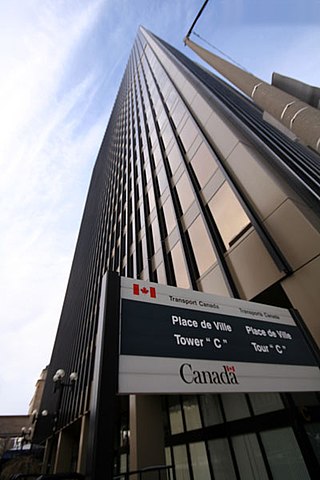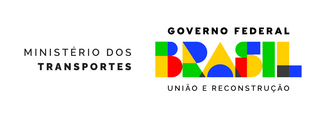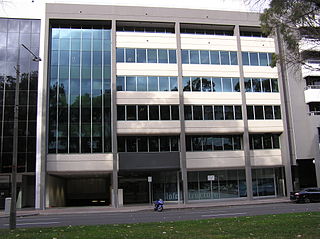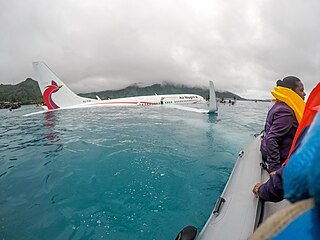
The Federal Aviation Administration (FAA) is a U.S. federal government agency within the U.S. Department of Transportation which regulates civil aviation in the United States and surrounding international waters. Its powers include air traffic control, certification of personnel and aircraft, setting standards for airports, and protection of U.S. assets during the launch or re-entry of commercial space vehicles. Powers over neighboring international waters were delegated to the FAA by authority of the International Civil Aviation Organization.

The Federated States of Micronesia, or simply Micronesia, is an island country in Micronesia, a subregion of Oceania. The federation consists of four states—from west to east, Yap, Chuuk, Pohnpei, and Kosrae—that are spread across the western Pacific. Together, the states comprise around 607 islands that cover a longitudinal distance of almost 2,700 km (1,700 mi) just north of the equator. They lie northeast of Indonesia and Papua New Guinea, south of Guam and the Marianas, west of Nauru and the Marshall Islands, east of Palau and the Philippines, about 2,900 km (1,800 mi) north of eastern Australia, 3,400 km (2,100 mi) southeast of Japan, and some 4,000 km (2,485 mi) southwest of the main islands of the Hawaiian Islands.

The politics of the Federated States of Micronesia (FSM) takes place in a framework of a federal assembly-independent representative democratic republic. The President of the Federated States of Micronesia is both head of state and head of government. Executive power is exercised by the president and his cabinet, while legislative power is vested in both the president and the Congress. The judiciary is independent of the executive and the legislature.

Critical infrastructure, or critical national infrastructure (CNI) in the UK, describes infrastructure considered essential by governments for the functioning of a society and economy and deserving of special protection for national security. Critical infrastructure has traditionally been viewed as under the scope of government due to its strategic importance, yet there's an observable trend towards its privatization, raising discussions about how the private sector can contribute to these essential services.

Transport Canada is the department within the Government of Canada responsible for developing regulations, policies and services of road, rail, marine and air transportation in Canada. It is part of the Transportation, Infrastructure and Communities (TIC) portfolio. The current Minister of Transport is Pablo Rodriguez. Transport Canada is headquartered in Ottawa, Ontario.

The Federal Highway Administration (FHWA) is a division of the United States Department of Transportation that specializes in highway transportation. The agency's major activities are grouped into two programs, the Federal-aid Highway Program and the Federal Lands Highway Program. Its role had previously been performed by the Office of Road Inquiry, Office of Public Roads and the Bureau of Public Roads.

The Kentucky Transportation Cabinet (KYTC) is Kentucky's state-funded agency charged with building and maintaining federal highways and Kentucky state highways, as well as regulating other transportation related issues.

The Ministry of Transport is a ministry of the Government of Singapore responsible for the administration and regulation of land, sea and air transportation in Singapore.

The Department of Transportation is the executive department of the Philippine government responsible for the maintenance and expansion of viable, efficient, and dependable transportation systems as effective instruments for national recovery and economic progress. It is responsible for the country's land, air, and sea communications infrastructure.

The Australian Transport Safety Bureau (ATSB) is Australia's national transport safety investigator. The ATSB is the federal government body responsible for investigating transport-related accidents and incidents within Australia. It covers air, sea and rail travel. The ATSB is an independent Commonwealth Government statutory agency, governed by a Commission and is separate from transport regulators, policy makers and service providers.
The Royal Norwegian Ministry of Transport, also referred as Ministry of Transport and Communications is a Norwegian ministry established in 1946, and is responsible for transportation in Norway. The ministry was responsible for communication infrastructure until may 2019, when the responsibility for the Norwegian Communications Authority was transferred to Ministry of Local Government and Regional Development. Since October 2021, the ministry has been headed by Jon-Ivar Nygård of the Labour Party. The department must report to the parliament (Stortinget).

The Civil Aviation Authority of the Philippines is the civil aviation authority of the Philippines and is responsible for implementing policies on civil aviation to assure safe, economic and efficient air travel. The agency also investigates aviation accidents via its Aircraft Accident Investigation and Inquiry Board. Formerly the Air Transportation Office, it is an independent regulatory body attached to the Department of Transportation for the purpose of policy coordination.

The Ministry of Transport and Sustainable Mobility (MITMA), traditionally known as the Ministry of Development (MIFOM), is the department of the Government of Spain responsible for preparing and implementing the government policy on land, air and maritime transport infrastructure and the control, planning and regulation of the transport services on this areas. It is also responsible for guaranteeing access to housing; urban, soil and architecture policies; planning and controlling the postal and telegraph services, directing the services related to astronomy, geodesy, geophysics and mapping, and planning and programing the government investments on infrastructure and services related to this scope. The Ministry's headquarters are in the New Ministries government complex.

The Ministry of Transport or Transportation is a cabinet-level federal ministry in Brazil. It is the body responsible to enforce and direct regulations concerning transport, from roads and railways to ports and aviation and it also advises the President of Brazil in the execution and formulation of these policies. It was first established in 1992, during Fernando Collor de Mello's presidency. It was dissolved on 1 January 2019 during Jair Bolsonaro's government and merged into the Ministry of Infrastructure. The first minister to take office into the ministry since its re-creation in 2023 is Renan Filho.
The Federal Civil Aviation Agency is a division of the Secretariat of Communications and Transportation of Mexico. It replaced the former Directorate General of Civil Aeronautics on October 16, 2019. It is an agency of the Subsecretaría de Transporte of the Secretariat of Infrastructure, Communications and Transportation of Mexico. Its main responsibilities is to act as civil aviation authority (CAA) and to investigate aviation accidents and incidents in Mexico.

Ministry of Physical Infrastructure and Transport is the governmental body of Nepal mainly responsible for domestic transport and rail transport as well as waterways.

The permanent representative of Australia to the International Civil Aviation Organization is an officer of the Australian Department of Infrastructure, Transport, Regional Development, Communications and the Arts and the head of the delegation of the Commonwealth of Australia to the Council of the International Civil Aviation Organization (ICAO) in Montreal, Canada. The position has the rank and status of an ambassador extraordinary and plenipotentiary and is one of Australia's representatives to the United Nations and its other constituent agencies. The Australian nominee to the Air Navigation Commission, a body that works towards the uniformity in regulations, standards and procedures which will facilitate and improve air navigation to international standards, acts as the deputy to the Permanent Representative.

The Department of Infrastructure and Regional Development was an Australian Government department that existed between September 2013 and December 2017. Matters dealt with by the department included: infrastructure planning and coordination; transport safety; land transport; civil aviation and airports; maritime transport including shipping; administration of Australian territories; constitutional development of the Northern Territory and the Australian Capital Territory; regional programs; regional development; local government matters; and regional policy.

Air Niugini Flight 73 was a scheduled service from Pohnpei, Federated States of Micronesia (FSM) to Port Moresby, Papua New Guinea, via Chuuk, FSM. On 28 September 2018, a Boeing 737, operated by Air Niugini, landed short of the runway at Chuuk International Airport in Weno (FSM) and came to rest in Chuuk Lagoon. Locals in small boats rescued most passengers and all crew members. One passenger was initially declared missing, and was later found dead by rescue divers. Forty-six people survived but six of them were injured.
















